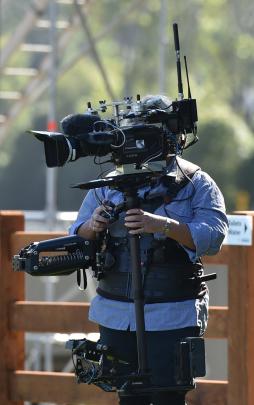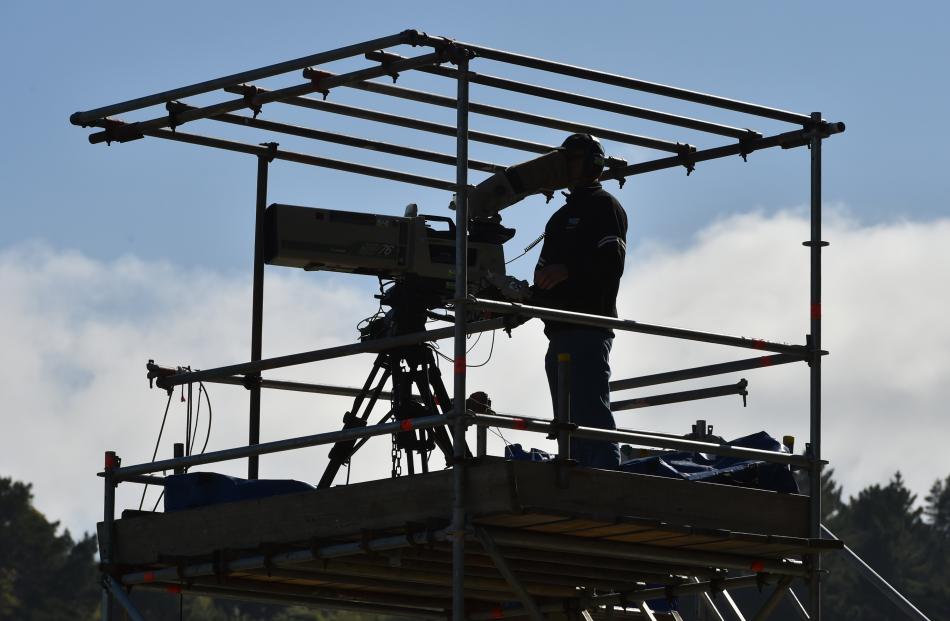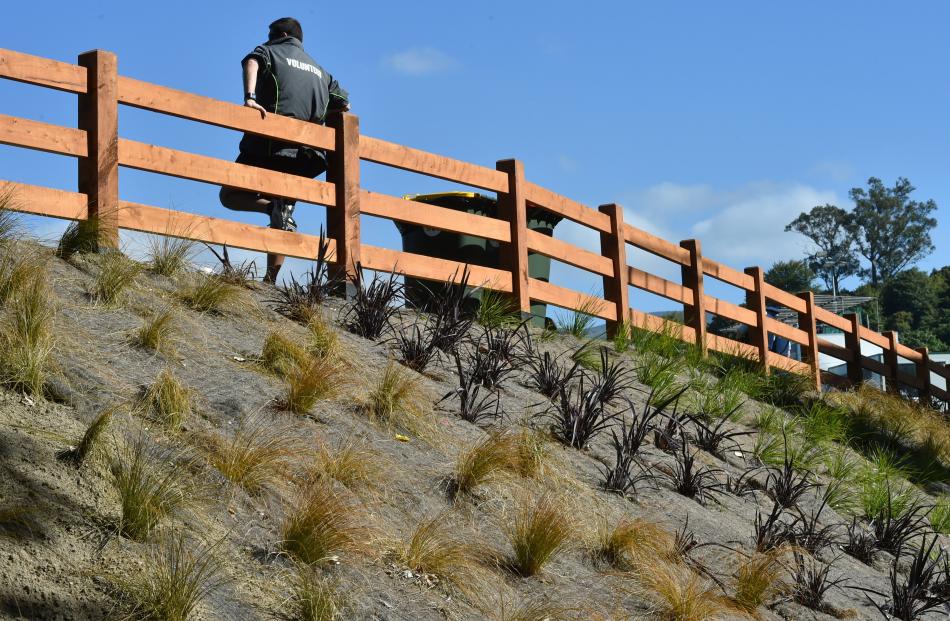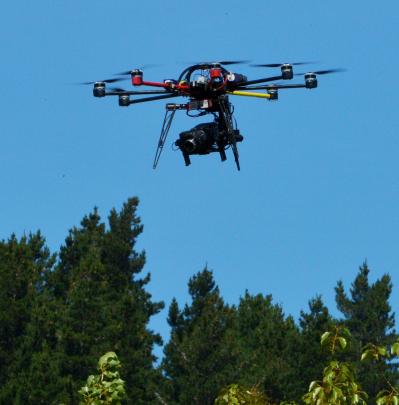There was an unusual and not instantly recognisable whirring noise that greeted punters who shuffled up Logan Park Dr towards University Oval this week.
The whirring drifted in and out, became sharp then dull before changing pitch in a subtle way as fans drifted en masse to the efficient blue-shirted ticket takers at the gates of the big game.
The sound came from above, and there, look; was that a glimpse of something hovering above the trees, something barely discernable through the sun-soaked foliage?
A strange bird, perhaps it was, or some multi-limbed wraith unleashed from the nearby forest.
It was neither of those things.
From above the trees it drifted northwards and descended slowly, gently towards the recently redeveloped and now barely undulating greenery of the Logan Park sports ground, and against the glare of the clear autumn blue it whizzed into focus.
This is what we saw: we saw a drone.
It was a drone that buzzed emphatically, it buzzed in the sky, and beneath it hung arrogantly the mechanical genitalia of a powerful lens, an unblinking TV eye sent from above to look at us, the modest yet intrinsically decent little city in the South (one of the world’s great small cities), Dunedin.
The cricket was on, and we were being watched.
But that was not the only lens in play at the oval.
Atop tall scaffolds and on lofty platforms dotted around the ground were television cameras.
Huge cameras manned by technicians with faces grafted directly on to their machinery cast their unrelenting stare from on high.
It was unclear where man and technology and scaffold began and ended as muscle, sinews, steel and digital technology merged in a monstrous whole.
At ground level a part-camera operator part-robotic surveillance ’bot, bristling with digital everything, prowled the grassy hill in search of who-knows-what.
Lenses were screwed directly into the operator’s eyes and cables from an aerial plunged straight through the ear to the core of the brain.
All of them were there to stare at us, and there was no hiding from the harsh glare of scrutiny.
They were there to document us, to find out who we were and what we wore, to size us up and compare us with others to see how we performed in the great scheme of things.
They were looking right into us, right into our hearts to discover the shameful passions we keep hidden in dark, damp areas of our brain, passions we deny even to ourselves.
They were looking for weakness.
But we were prepared.
Like a 5-year-old brushed and scrubbed within an inch of their life, imprisoned in a steel-strength starched white shirt and grimly ironed short pants, ready for church, we were all sorts of ready.
Our oval had handsome stained wooden fences with railings that ran snugly through bespoke well-carpentered posts standing strongly and sustainably on the edge of the embankment.
You could lean against them with all your bodyweight and they would not move.Behind, on a bank, tiny grasses grew with a stern sort of cheerfulness, each laid out at perfectly measured distances from one another in exact little rows.
Each grew among its fellows in a colour-coded platoon, first light green, then light yellow, then red then dark green and so on they marched across the little slope.
It was all so gloriously neat.
It was also polite.
At every turn a helpful security guard stood as a sort of hi-vis safeguard.
A group of what were clearly actors pretending to be outrageous students chanted only slightly rude chants, and drank only slightly too much as they worked to provide colour.
A young man and woman with a extendable picker-upper and a rubbish bag prowled the ground lest rubbish should fall from the hand of a lazy fan and make it to the ground, grabbing plastic cups as the last drop of beer was still tumbling down a throat and quickly transferring it to the bag.
And didn’t the sun shine?
It shone on the university nearby and the student homes across the park, it shone on the burned pine trees behind the oval, it shone on the nearby Forsyth Barr Stadium and it shone on the cricketers and the fans.
It shone on the leaves of the Logan Park trees, which made pretty patterns of shadow on the gentle lawns.
And it shone on the well prepared punters who knew how closely they were being watched, but who also knew how to act so nobody could think badly of Dunedin (one of the world’s great small cities).
They smiled and clapped and talked quietly among themselves, looking happy, well-adjusted and, more than anything, normal, as they watched New Zealand and South Africa bat and bowl and field.
Nobody dribbled inadvertently or was caught picking their nose.
Nobody stuck their fingers in their ear or scratched themselves in an undignified way or worried an area of unpleasant dry skin on their arm.
Everyone crossed their legs in a dainty fashion and sipped their tea with their little finger elegantly extended.But best of all, they kept their many and various psychological disorders strictly to themselves.
They pushed their poor self-esteem into a corner of their psyche where nobody could see it.
They made sure their resentment at Tauranga overtaking us as the fifth-largest (by population only) city in New Zealand was not etched deep across their brows.
They forced themselves not to look skyward in a panic the weather would turn and the world would think our climate was not just perfect.
Not one person began screaming the television weather always forecast rain and cloud for Dunedin, and we wake up to a sunny day.
Not one.
Because Dunedin knows how to act when the TV eye is glaring directly at us.
That’s why nobody saw a thing.




